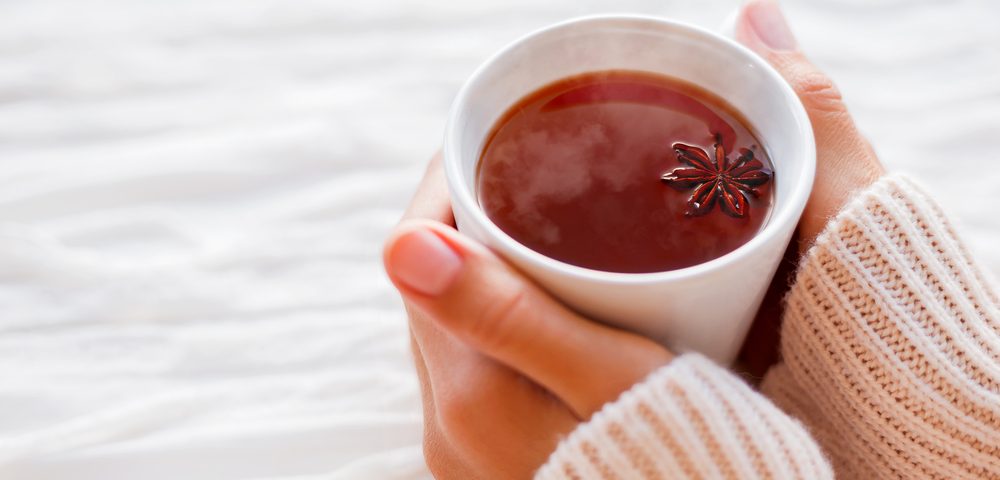I’ve always had an affinity for tea. In my teens and early 20s, it was a cup of Earl Grey with some milk and honey after school. Eventually, I came to prefer green tea with its antioxidants and various health benefits. Matcha and other herbal blends offered a caffeine boost as well as the soothing warmth that stimulates creativity and focus. And, most recently, that hot cup of tea brings me more than contentment: It brings relief.
In my pursuit of holistic ways of healing endometriosis, I have learned about the benefits of certain flowers, roots, and herbs. Certain plants are particularly effective in balancing female hormones, and, I discovered, in alleviating my chronic pain. I have found several effective and tasty herbal tea blends that contain combinations of these herbs, and I consume them regularly.
Chasteberry, also known as vitex, is a small, brown berry that has been used by naturopaths and holistic practitioners to ease PMS symptoms and boost fertility. One of my favorite herbal tea blends is a red tea from Republic of Tea that proclaims to boost skin health. It is a rooibos and chamomile tea that contains an amalgamation of chasteberry and various other berries, flowers, and roots such as hibiscus, red clover, burdock root, and orange peel. The beverage has a pomegranate essence and is as delicious as it is powerful. I drink at least two cups of this tea daily and have found that it reduces pain frequency. I have tested this theory by skipping it for several days only to find that some pain returns.
Raspberry leaf is known to be beneficial to women in pregnancy. Its nutrients purportedly strengthen the uterus and pelvic muscles. The leaf tannins contain astringent properties that reduce endo pain and are internally soothing. It is easy to find pure organic raspberry leaf tea in most grocery stores. I try to drink at least one to two cups of raspberry leaf tea a few times a week, if not daily.
In addition to regularly consuming these herbal teas, I sometimes simply drink a steaming cup of hot water. A combination of research, conversations with various naturopaths, and my personal experience has taught me that hot beverages, in general, are better for women who suffer from endometriosis. According to Chinese medicine, warm or hot liquids stimulate the “qi,” or innate energy and life force, which moves the blood. Drinking too many cold beverages can cause stagnant qi. Accumulation of cold-causing blood stasis can contribute to endometriosis symptoms.
As a self-proclaimed tea connoisseur, I enjoy trying new flavors and savoring the nuances of different blends. However, my appreciation of tea transcends the palate. The healing virtues of the beverage have mitigated the chronic pain in my life and that makes it invaluable. Relief is not instantaneous, but consuming regular cups of herbal tea seems to work pre-emptively and in conjunction with other healthy living choices in keeping my endometriosis pain away.
***
Note: Endometriosis News is strictly a news and information website about the disease. It does not provide medical advice, diagnosis, or treatment. This content is not intended to be a substitute for professional medical advice, diagnosis, or treatment. Always seek the advice of your physician or other qualified health provider with any questions you may have regarding a medical condition. Never disregard professional medical advice or delay in seeking it because of something you have read on this website. The opinions expressed in this column are not those of Endometriosis News or its parent company, BioNews Services, and are intended to spark discussion about issues pertaining to endometriosis.

